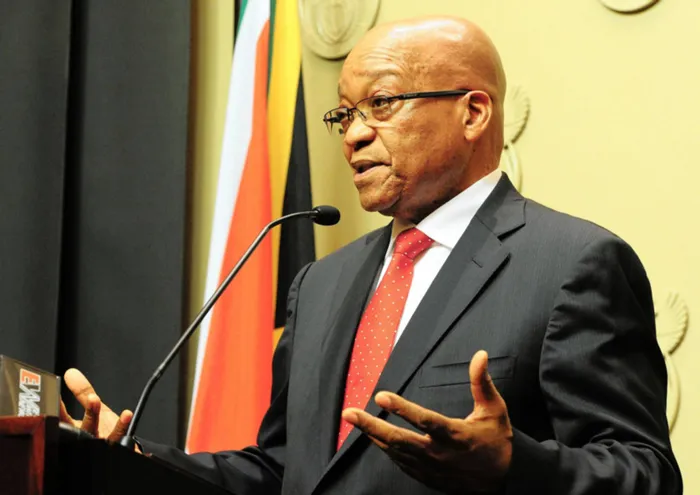Zuma puts positive spin on strikes

President Jacob Zuma addresses the Press Gallery Association at Tuynhuys in Cape Town on Thursday. He says the ANC will gain more votes in next year's national election. Photo: GCIS President Jacob Zuma addresses the Press Gallery Association at Tuynhuys in Cape Town on Thursday. He says the ANC will gain more votes in next year's national election. Photo: GCIS
Johannesburg - President Jacob Zuma gave a positive spin yesterday to prospects of limiting any economic damage during the current strike season and said the government was still putting together a task team which would seek an economic solution to the domestic economy’s structural problems.
He believed that the African trend that former liberation movements started to lose ground after 20 years in power would be bucked at the 2014 national election. Even those who did not enjoy the fruits of delivery as they had expected, gave the ANC the benefit of the doubt. There was also broad support for ANC policies, which were kept up to date.
Speaking to the Parliamentary Press Gallery Association at Tuynhuys, Zuma was pressed on what he saw as the likely consequences of the trouble in Cosatu, including the suspension of general secretary Zwelinzima Vavi, and in particular threats by the National Union of Metalworkers of SA affiliate to stop backing the ANC.
“We are concerned about the tensions in the federation that is our alliance partner. In so far as the utterances about perhaps not going with the ANC in the elections, I’m sure that people… as individuals will have their views, but those are matters that we will engage.”
Numsa general secretary Irvin Jim has threatened not to campaign for the ANC should the National Development Plan – backed by the party’s Mangaung conference in December last year – be included in the party’s election manifesto.
“We will not fail to come to some understanding,” the president said, indicating that he did not foresee that the alliance with Cosatu would be in any future danger.
Zuma said the economic task team focusing on accelerating growth in the country through extraordinary measures was still on track.
While it could not be determined whether the task team had been established, the president said it was “very much alive… the processes have not died. At the right moment the matter will be considered.”
Referring to strike season, the president said the negotiations sometimes “naturally reach deadlocks… this is expected”.
Zuma noted that many difficulties were associated with global factors, but that the government, business and labour needed to work together during strike season.
Meanwhile, Zuma sent back the Protection of State Information Bill to Parliament for revision of unconstitutional elements. The so-called secrecy bill makes it a criminal offence for members of the public to disclose classified state information, which opponents say could foster corruption.
While the announcement has been widely welcomed by the opposition and the Right to Know campaign, it is not clear whether this will lead to a significant improvement in the controversial legislation.
Two offending clauses were sent back by the president, who said that the bill “does not pass constitutional muster” and the two clauses were “irrational”.
The one clause that has to be reworked applies to anyone who “knowingly classifies information” to give undue advantage to anyone within a competitive bidding process.
Asked if that wasn’t a step backwards, Murray Hunter of the Right to Know campaign said there was insufficient information about what the president’s concerns were regarding these clauses.
However, he welcomed the fact that the president was not signing the measure into law.
DA parliamentary leader Lindiwe Mazibuko said her party and the ACDP had petitioned the president to send the bill back to parliament.
The second clause says any person who fails to comply with section 15 is guilty of an offence and liable to a fine or imprisonment not exceeding five years. Experts say the section referred to is incorrect. - Business Report